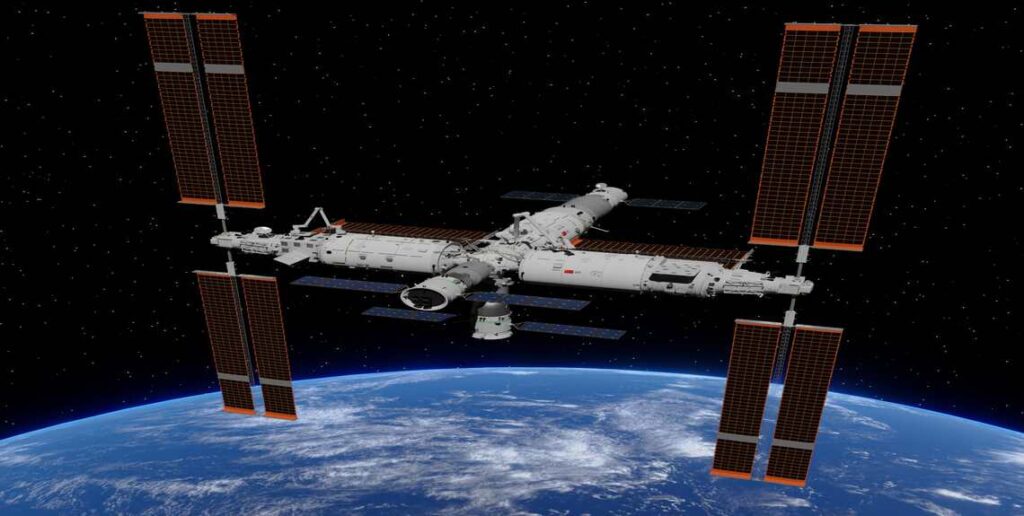
Chinese space team finds new strain of radiation-resistant bacteria aboard Tiangong station hardware. (Photo by Shujianyang/Wikipedia)
A new strain of radiation-resistant bacteria has been identified on board China’s Tiangong Space Station, sparking renewed scientific interest in the resilience of microbes in outer space.
The bacteria, a unique form of Niallia, was detected on the surface of station hardware by Chinese taikonauts during a routine inspection in May 2023.
The findings were published in the International Journal of Systematic and Evolutionary Microbiology.
The discovery indicates that certain bacterial species may not only survive but adapt to the extreme conditions of space—a revelation that could dramatically influence future spacecraft sanitation, astronaut health protocols, and interplanetary life-support systems.
Tiangong Station Yields Radiation-Resistant Bacteria With Potential to Influence Future Cosmos Travel
Identified as a close relative of Niallia circulans, the newly discovered strain exhibits advanced resistance to radiation and oxidative stress. This trait makes it ideal for studying microbial behavior during extended space missions.
The report also noted the bacterium’s ability to hydrolyze gelatine—an adaptation that may aid survival in nutrient-scarce environments.
“The understanding of radiation-resistant bacteria is crucial for protecting astronaut health and maintaining spacecraft integrity over long durations,” the authors noted.
Conditions aboard the Tiangong Space Station—such as microgravity, radiation, and limited food—challenge microbial survival. Learning how these bacteria adapt could inform the design of advanced life-support and waste-recycling systems essential for long-term cosmos travel.
Implications for Contamination Control and Cosmic Biology
Besides its medical and technological implications, the study also enhances our understanding of contamination control aboard space stations. How bacteria attach to surfaces and survive decontamination efforts informs critical hygiene measures for manned space habitats.
This discovery of radiation-resistant bacteria further suggests Earth-originating life may endure extraterrestrial conditions, contributing to theories about panspermia and cross-planetary life transfer.
In future research, scientists will explore how this bacterial strain’s genetics and enzymatic responses could benefit space biotechnology.
The findings from Tiangong Station may mark a turning point in how humanity plans and protects long-haul cosmos travel.

